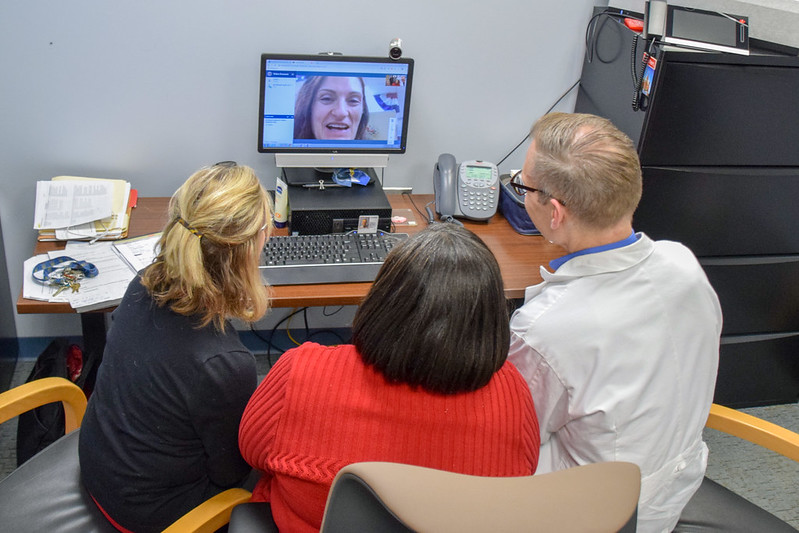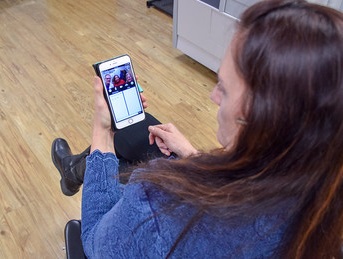Rehabilitation and Prosthetic Services
Virtual Rehabilitation and Prosthetic Care
Virtual Rehabilitation and Prosthetic Services uses telehealth technology for the diagnosis, evaluation and treatment of Veterans of all ages with physical and/or cognitive impairment. It affords Veterans the opportunity to receive specialized rehabilitation services through virtual modalities in the home, clinic, hospital, or at non-VA locations. Virtual Rehabilitation and Prosthetic Services addresses combat and non-combat-related injuries and illnesses and promotes greater access to VA care.. Specialties providing care using a virtual platform include, but are not limited to physical therapy, occupational therapy, speech-language pathology, kinesiotherapy, recreational and creative arts therapies, assistive technology, physical and rehabilitation medicine, amputation care, blind rehabilitation, chiropractic care, orthotics, prosthetics, and pedorthics clinical services.
Three types of VA virtual care:
Real-Time Video Telehealth occurs in the hospital setting and uses telehealth technology in the clinic when specialists, who may not be located at the VA site where the Veteran is receiving care, provide expert diagnosis and treatment. These providers use telehealth instruments to complete evaluations, make diagnoses, and perform check-ups virtually.
VA Video Connect, or VVC, is a virtual care platform used to evaluate, diagnose and treat Veterans from the comfort of their home. VVC allows the provider to identify and assess the needs the patient and their family may have in the home environment. Seeing a person in their home eliminates unnecessary travel for the Veteran and their families, enhances communication and education and can help foster a smooth transition from hospitalization to home. To learn more about VVC, visit VA Video Connect | VA Mobile.
My HealtheVet is VA’s secure, web-based personal health record. Veterans can access their health records, a Health Education Library, search for information about benefits, track personal health measurements (blood pressure, weight, pain, etc.) and utilize tools such as My VA Images to communicate with providers through video or photo clips. To learn more about My HealtheVet go to About MHV - My HealtheVet.
To learn more about telehealth and virtual care in VA go to Telehealth VA




















